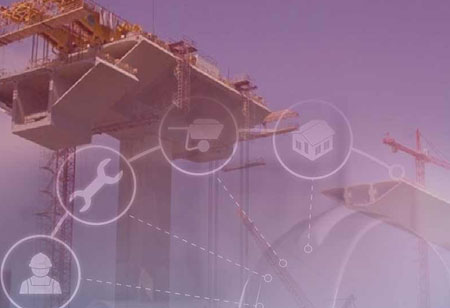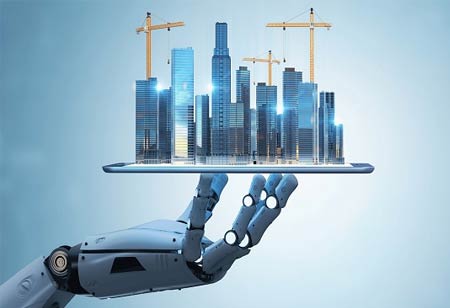Thank you for Subscribing to Construction Business Review Weekly Brief
Specials
- MEP Canada
- Kitchen and Bath
- Decking Canada
- Architectural Glass Europe
- MEP APAC
- Construction Saudi Arabia
- German Apartment and Condominium Contractors
- Construction Law APAC
- Outdoor Construction
- Foundation Construction Canada
- Building Sealing Solutions Europe
- Apartment and Condominium Contractors Canada
- Cold Storage Construction APAC
- Precast Concrete Europe
- Construction Staffing Europe
- Pre-Construction Services
- Flooring System APAC
- Scaffolding Canada
- Swimming Pool Construction Canada
- Construction Management Canada
- Dummy
- Building Restoration and Maintenance Canada
- Residential Construction
- Concrete Canada
- Construction Cladding Europe
- Construction Cladding APAC
- Concretes, Aggregates and Construction Materials APAC
- Concretes, Aggregates and Construction Materials Europe
- Commercial Contractors Europe
- Commercial Contractors APAC
- Cold Storage Construction Canada
- Flooring Systems Europe
- Construction Management APAC
- Landscaping Canada
- Construction Coating Europe
- Construction Tech Startups Europe
- Insulation Services Europe
- Mechanical Contractor Canada
- Mould Remediation and Testing Europe
- Swimming Pool Construction APAC
- Construction Engineering Services
- Mechanical Electrical and Plumbing
- Roofing Systems Europe
- Architectural Glass APAC
- Startups APAC
- Forensic and Owners Representative
- Flooring System
- Waterproofing APAC
- Wall Systems
- Safety and Compliance Europe
- Construction Bidding and Auctions
- Modular and Prefab Construction
- Architectural Glass
- Construction MENA
- Construction Demolition and Recycling Europe
- Modular Construction Europe
- Construction Interiors
- Steel Building APAC
- HVAC
- Doors and windows
- Modular Construction APAC
- Insulation, Coating and Waterproofing
- Building Information Modeling APAC
- Sustainable Construction APAC
- Building Restoration and Maintenance
- Commercial Contractors
- Specialty Construction
- Construction Engineering Canada
- Construction Engineering MENA
- Modular Construction Canada
- Roofing and Siding Systems
- Construction Latam
- Workforce Management and Staffing
- Roofing Systems APAC
- Construction Consulting
- Steel Building Europe
- Construction Demolition and Recycling APAC
- Safety and Compliance APAC
- Concretes, Aggregates and Materials
- Construction Cladding
Green Construction and Sustainable Staffing Practices in Europe
The increasing prevalence of green construction in Europe can be attributed to heightened climate objectives and a growing public consciousness regarding environmental concerns.

By
Construction Business Review | Friday, January 12, 2024
Stay ahead of the industry with exclusive feature stories on the top companies, expert insights and the latest news delivered straight to your inbox. Subscribe today.
These interventions contribute to effective stormwater management and also enhance air quality and foster the creation of urban oases, showcasing a holistic approach to sustainable urban development
FREMONT, CA: The increasing prevalence of green construction in Europe can be attributed to heightened climate objectives and a growing public consciousness regarding environmental concerns. Consequently, businesses within the construction sector are progressively embracing sustainable personnel practices, seeking qualified individuals well-versed in and committed to the implementation of environmentally friendly methodologies.
Green Construction Trends in Europe
The contemporary emphasis on energy efficiency in the construction industry is underscored by the growing popularity of passive design strategies, the utilisation of renewable energy sources such as solar and geothermal power, and the incorporation of energy-efficient building materials. This trend is further propelled by increasingly stringent energy performance regulations that drive the widespread adoption of sustainable practices.
A pivotal aspect of sustainable construction involves the use of eco-friendly materials, with recycled materials, locally sourced timber, and bio-based products replacing traditional materials with high embodied carbon. To ensure responsible forestry practices, certifications such as PEFC and FSC play a crucial role in promoting sustainable material choices.
In alignment with circular economy principles, there is a notable shift towards the deconstruction and reuse of building components, aiming to minimise waste and maximise resource efficiency. The integration of Building Information Modeling (BIM) proves instrumental in facilitating this process, streamlining the management of materials throughout the lifecycle of a building.
The Horizon 2020 EU Project is dedicated to advancing and showcasing cutting-edge green building technologies and practices.





